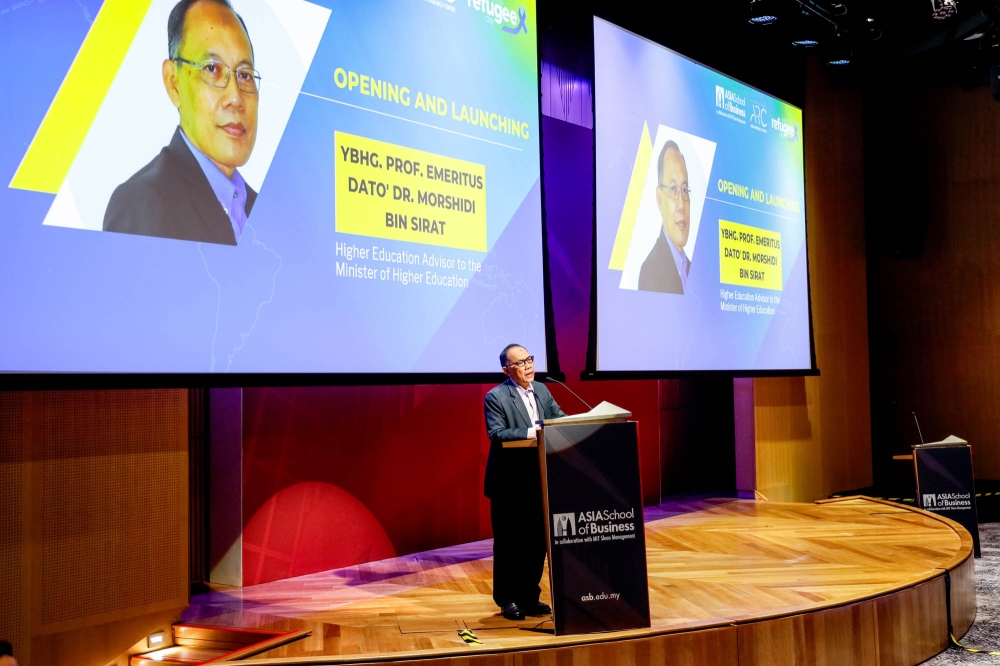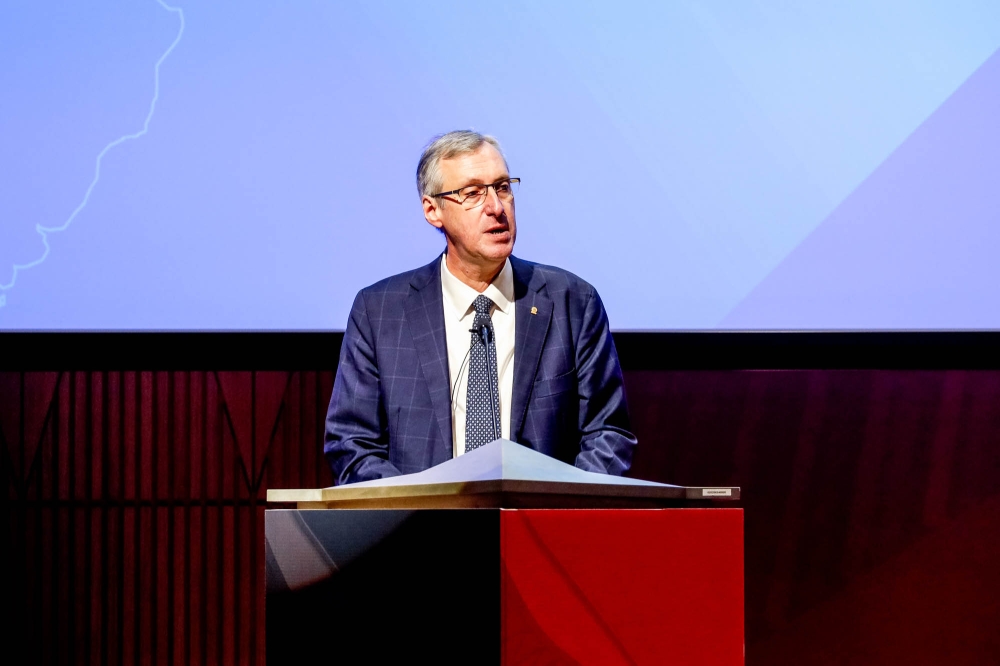KUALA LUMPUR, June 19 — Refugees can be agents of change and help boost innovation and the economy of the host countries that accept them if given the chance, the founder and director of the Yemeni Refugee Women’s Association said today.
Leena Al-Mujaheed said all refugees need are opportunities to rebuild their lives, such as education.
“Despite the immense challenge they face, they possess untapped talents, skills, and aspirations.
“When given the opportunity to rebuild their lives and contribute to their host communities, refugees will become agents of change, driving innovation, cultural enrichment, and economic growth,” she said at a two-day research workshop on refugee studies and forced displacement jointly organised by the United Nations High Commissioner for Refugees (UNHCR) and the Asia School of Business here ahead of World Refugee Day tomorrow.

Prof Datuk Morshidi Sirat, special adviser to the Higher Education Minister Datuk Seri Khaled Nordin, expressed the government’s full support for the workshop to advocate education as a basic right for refugees.
“The refugees will be at stake if we play pretend on their issues. I fully support this workshop to challenge the national thinking, develop transformative and principle leaders,” he said.
About 200 participants from all over the world attended the workshop and gathered to exchange and discuss ideas to understand deeper on refugees issues.
A refugee advocate from Tokyo, Japan, Yusuke Yasuda said he hopes that this will be a platform for him to gather more ideas and perspectives from people around the world. “This is my first time attending a workshop from UNHCR and I’m excited. I studied the labour migrant issues years ago in the UK, but although this workshop Isn't really my topic, I’m here to deepen my knowledge on refugees’ issues.
“This type of workshop is important for us to exchange ideas and also to disseminate it to the public about awareness. I’m planning to further my study doing a doctorate and maybe I can get some basis, foundation, ideas and motivation here to do it,” the 32-year-old said.
Malaysian Sharleen Foo, 35, said she voluntarily registered for the workshop as she wants to learn more on why refugees’ matter to a country.
“I wanted to know how refugees can contribute to our country and speaking to some people here, they explained that they can contribute to our economy and our communities to name a few.
“I guess I’ll gain a lot more information when the workshop finishes. Refugees should be treated with basic human needs. Always,” she said.
Some 181,300 refugees in Malaysia are currently living in situations where they face a daily challenge to seek basic human rights.
The two-day workshop is being held for the third time in Malaysia by the UNHCR, in collaboration with the Asia School of Business, to highlight the importance of those who fled their war-torn country receiving basic human needs such as healthcare and education when seeking asylum.

UNHCR representative, Thomas Albrecht, said the workshop is to create a space to connect researchers working on refugee studies in South-east Asia, including Malaysia.
“World Refugee Day is a day to honour courage, strength, and contributions of millions of people around the world who have been forced to flee their homes due to violence, war or persecution.
“We see this workshop as a space for networking and merging ideas and a strengthening of the collective knowledge and understanding of where the gaps are in refugee research in the country.
“Our hope is that this will be the start of a community of researchers and academics working to strengthen the efforts of civil society, the government, refugee communities, and UN organisations in Malaysia,” he said in his opening ceremony speech at the Asia School of Business here.
Albrecht said working more closely in partnership with academics towards solid and evidence-based advocacy is critical.
“It is critical in strengthening our lobbying for policy change, especially when new or potentially unpopular ideas are being proposed,” he said.



















